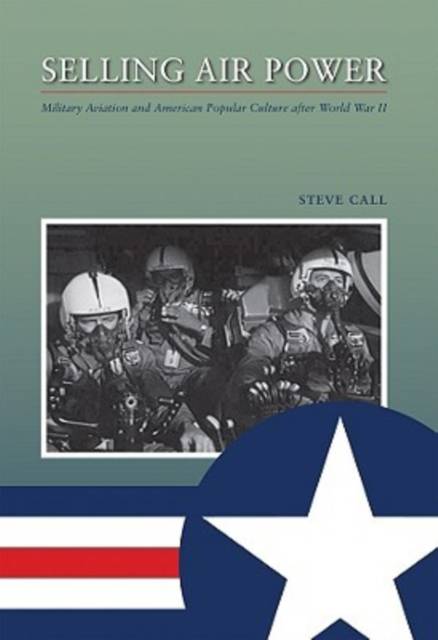
- Retrait gratuit dans votre magasin Club
- 7.000.000 titres dans notre catalogue
- Payer en toute sécurité
- Toujours un magasin près de chez vous
- Retrait gratuit dans votre magasin Club
- 7.000.000 titres dans notre catalogue
- Payer en toute sécurité
- Toujours un magasin près de chez vous
75,45 €
+ 150 points
Format
Description
In Selling Air Power, Steve Call provides the first comprehensive study of the efforts of post-war air power advocates to harness popular culture in support of their agenda. In the 1940s and much of the 1950s, hardly a month went by without at least one blatantly pro-air power article appearing in general interest magazines. Public fascination with flight helped create and sustain exaggerated expectations for air power in the minds of both its official proponents and the American public. Articles in the Saturday Evening Post, Reader's Digest, and Life trumpeted the secure future assured by American air superiority. Military figures like Henry H. "Hap" Arnold and Curtis E. LeMay, radio-television personalities such as Arthur Godfrey, cartoon figures like Steve Canyon, and actors like Jimmy Stewart played key roles in the unfolding campaign. Movies like Twelve O'Clock High!, The Court-Martial of Billy Mitchell, and A Gathering of Eagles projected onto the public imagination vivid images confirming what was coming to be the accepted wisdom: that America's safety against the Soviet threat could best be guaranteed by air power, coupled with nuclear capability. But as the Cold War continued and the specter of the mushroom cloud grew more prominent in American minds, another, more sinister interpretation began to take hold. Call chronicles the shift away from the heroic, patriotic posture of the years just after World War II, toward the threatening, even bizarre imagery of books and movies like Catch-22, On the Beach, and Dr. Strangelove. Call's careful analysis goes beyond the public relations campaigns to probe the intellectual climate that shaped them and gave them power. Selling Air Power adds a critical layer of understanding to studies in military and aviation history, as well as American popular culture.
Spécifications
Parties prenantes
- Auteur(s) :
- Editeur:
Contenu
- Nombre de pages :
- 240
- Langue:
- Anglais
- Collection :
- Tome:
- n° 124
Caractéristiques
- EAN:
- 9781603440912
- Date de parution :
- 10-02-09
- Format:
- Livre relié
- Format numérique:
- Genaaid
- Dimensions :
- 152 mm x 229 mm
- Poids :
- 489 g







